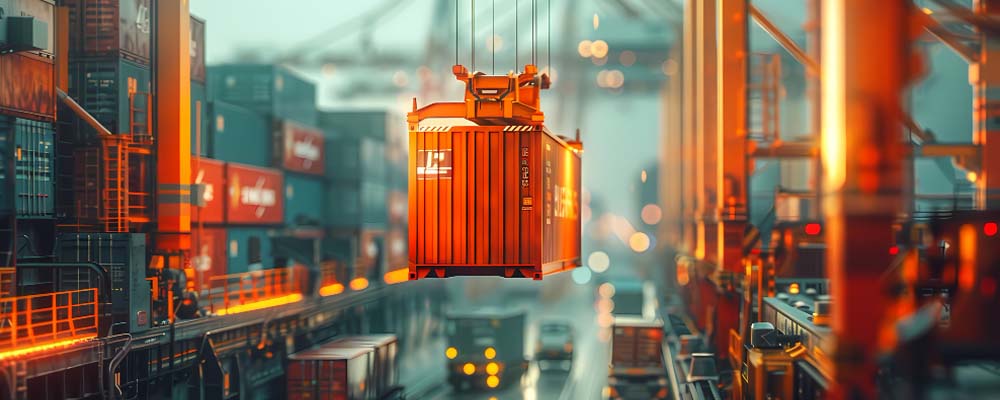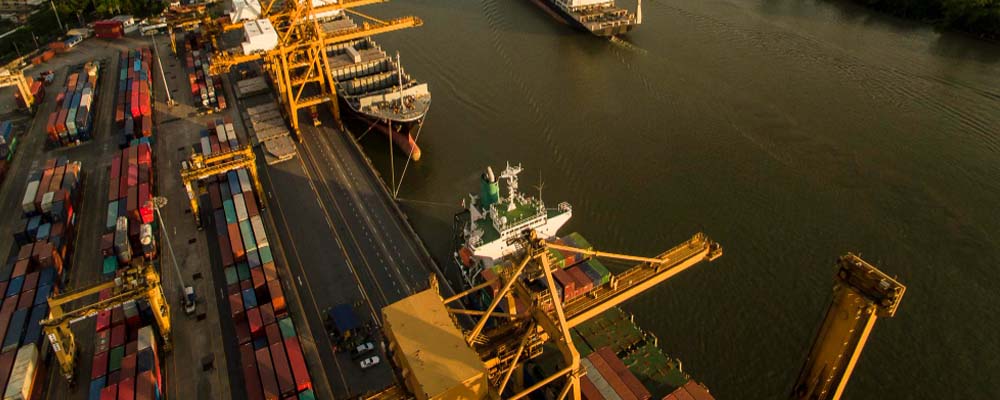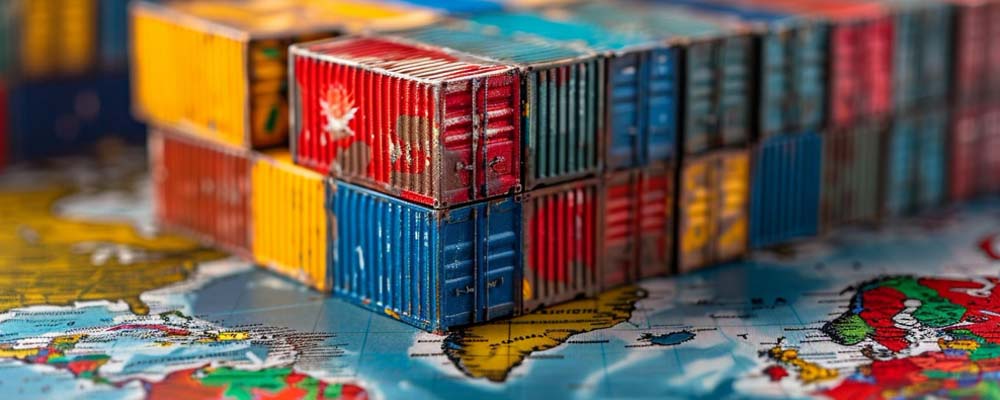
In today’s globalized economy, mastering the intricacies of international shipping is essential for businesses looking to expand their reach. Brazil, with its vibrant economy and strategic location in South America, represents a prime destination for many companies. However, navigating the process of shipping containers to Brazil presents a series of challenges and regulatory hurdles. This comprehensive guide aims to simplify the process, providing practical advice and detailed insights to freight forwarding companies, logistics providers, importers and exporters, customs brokers, manufacturers, e-commerce businesses, and industry-related logistics vendors.
What are the Ways to Ship to Brazil?
When it comes to shipping containers to Brazil, businesses have several options to choose from, each with its own benefits and drawbacks. Understanding these methods can help you make informed decisions that best suit your needs.
Sea Freight
Sea freight is the most common and cost-effective method of shipping containers to Brazil. It involves transporting goods by cargo ships, which can carry large volumes of containers at once. This method is ideal for heavy or bulky items that aren’t time-sensitive. Additionally, sea freight offers various options such as Full Container Load (FCL) and Less than Container Load (LCL), catering to different shipment sizes and budgets.
Air Freight
Air freight is the fastest but often the most expensive way to ship containers to Brazil. It’s suitable for high-value, time-sensitive goods that need to reach their destination quickly. Companies frequently use air freight for transporting perishable items, electronics, and urgent supplies. Despite its higher cost, the speed and reliability of air freight make it a viable option for businesses needing swift delivery.
Road Freight
Road freight is another option for shipping containers within the Mercosur region, which includes countries like Argentina, Paraguay, and Uruguay. People often use this method alongside sea freight for inland transportation. Road freight offers flexibility and can be cost-effective for shorter distances, although it may be subject to traffic and weather conditions.
 What Are the Costs to Ship a Container to Brazil?
What Are the Costs to Ship a Container to Brazil?
Understanding the costs involved in shipping a container to Brazil is crucial for budgeting and planning. Several factors can influence the overall expense, including shipping method, container size, and additional fees.
Base Shipping Costs
The base cost of shipping a container to Brazil varies depending on the shipping method. Sea freight is generally the most affordable, with prices ranging from $2,000 to $5,000 for a 20-foot container, depending on the origin and destination ports. Air freight can cost significantly more, often between $5,000 and $10,000 for the same container size, given its speed and convenience.
Additional Fees
In addition to base shipping costs, businesses must account for various additional fees. These can include port handling charges, customs duties, taxes, and insurance. Port handling charges cover the cost of loading and unloading containers at the port, while customs duties and taxes vary based on the type of goods being imported. Insurance is essential to protect against potential loss or damage during transit.
Hidden Costs
Hidden costs are often overlooked but can add up quickly. These might include storage fees if your shipment is delayed at the port, demurrage charges for extended container use, and inspection fees for customs clearance. Being aware of these potential expenses can help you avoid unexpected financial surprises.
What is the Transit Time When Shipping to Brazil?
Transit time is a critical factor in planning your shipment to Brazil. Various elements can influence how long it takes for your container to reach its destination.
Sea Freight Transit Time
Sea freight transit times to Brazil can vary widely depending on the origin port and shipping route. On average, it takes about 30 to 40 days for a container to travel from Asia to Brazil, while shipments from Europe typically take around 20 to 25 days. The transit time from North America can range from 15 to 25 days, depending on the specific ports involved.
Air Freight Transit Time
Air freight is significantly faster, with transit times usually ranging from 1 to 5 days, depending on the distance and flight availability. This method is ideal for urgent shipments but comes at a higher cost.
Road Freight Transit Time
For road freight within the Mercosur region, transit times can vary based on the distance and road conditions. Generally, it takes between 5 to 10 days for a container to travel from neighboring countries to Brazil by road.
 Main Ports in Brazil
Main Ports in Brazil
Brazil boasts several major ports that play a crucial role in international trade. Familiarizing yourself with these ports can help you choose the most convenient and cost-effective entry point for your shipment.
Port of Santos
The Port of Santos is the largest and busiest port in Brazil, handling a significant portion of the country’s imports and exports. Located in São Paulo, it offers excellent infrastructure and connectivity, making it a preferred choice for many businesses.
Port of Paranaguá
Situated in the state of Paraná, the Port of Paranaguá is renowned for its efficiency and capacity. It’s a key hub for agricultural exports, including soybeans and coffee, and offers extensive storage and handling facilities.
Port of Rio de Janeiro
The Port of Rio de Janeiro is another major port, known for its strategic location and modern facilities. It’s particularly popular for imports, thanks to its proximity to the city’s industrial and commercial centers.
How Do I Find a Freight Forwarder in Brazil?
Finding a reliable freight forwarder is essential for a smooth shipping experience. Here are some tips to help you select the right partner.
Research and Reviews
Start by conducting thorough research and reading reviews from other businesses. Look for freight forwarders with a strong track record and positive feedback. Websites like Freightos and Flexport offer comprehensive reviews and ratings to aid your decision-making.
Industry Expertise
Choose a freight forwarder with expertise in your industry. They should be familiar with the specific regulations and requirements for shipping your type of goods. An experienced forwarder can help you navigate complex customs procedures and ensure compliance with local laws.
Service Offerings
Consider the range of services offered by the freight forwarder. They should provide end-to-end solutions, including documentation, customs clearance, and door-to-door delivery. A full-service provider can save you time and hassle by handling all aspects of the shipping process.
FAQs about Shipping Your Container to Brazil
How to Determine Shipping Costs to Brazil?
To determine shipping costs to Brazil, you’ll need to consider various factors, including the shipping method, container size, and additional fees. Utilize online calculators and consult with freight forwarders for accurate estimates.
What Type of Cargo Can Be Sent in a Container?
A wide range of cargo can be sent in a container, including raw materials, finished goods, machinery, and consumer products. Ensure your cargo complies with Brazilian import regulations and obtain any necessary permits or licenses.
What Paperwork is Needed for International Shipments to Brazil?
International shipments to Brazil require several key documents, including a commercial invoice, packing list, bill of lading, and certificate of origin. Additionally, you may need import permits and customs declarations. Working with an experienced freight forwarder can simplify the documentation process.
 Conclusion
Conclusion
Shipping containers to Brazil offers immense opportunities for businesses looking to expand their market reach. By understanding the various shipping methods, costs, transit times, and key ports, you can make informed decisions that optimize your logistics operations. Additionally, partnering with a reliable freight forwarder and staying informed about import regulations can ensure a smooth and successful shipping experience.
Ready to streamline your shipping process? Contact our team today to get started on your next shipment to Brazil.
By following this comprehensive guide, you’ll be well-equipped to handle the complexities of shipping containers to Brazil, ensuring a seamless and efficient experience for your business.




 What Are the Costs to Ship a Container to Brazil?
What Are the Costs to Ship a Container to Brazil? Main Ports in Brazil
Main Ports in Brazil Conclusion
Conclusion



